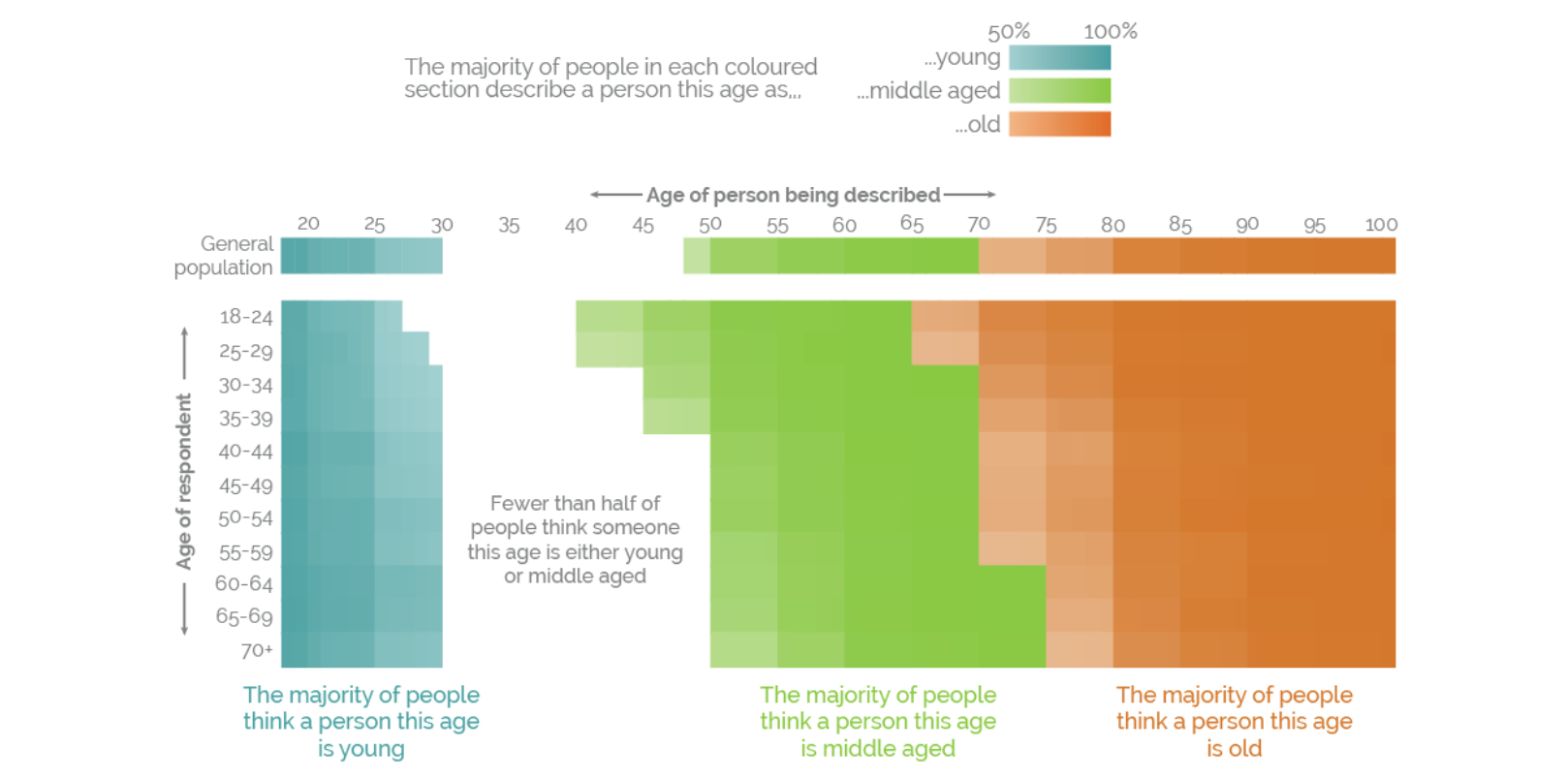Britons were asked by YouGov to define young, middle-aged and old
Most Britons believe you aren't middle-aged until at least 48

Your support helps us to tell the story
From reproductive rights to climate change to Big Tech, The Independent is on the ground when the story is developing. Whether it's investigating the financials of Elon Musk's pro-Trump PAC or producing our latest documentary, 'The A Word', which shines a light on the American women fighting for reproductive rights, we know how important it is to parse out the facts from the messaging.
At such a critical moment in US history, we need reporters on the ground. Your donation allows us to keep sending journalists to speak to both sides of the story.
The Independent is trusted by Americans across the entire political spectrum. And unlike many other quality news outlets, we choose not to lock Americans out of our reporting and analysis with paywalls. We believe quality journalism should be available to everyone, paid for by those who can afford it.
Your support makes all the difference.While some say you're only as old as you feel, it turns out that society has some pretty strong and consistent views about when you stop being young - and when you're officially old.
According to a recent survey by YouGov, Britons have very clearly defined definitions of youth, middle, and old-age.
For young people, it looks like youth is not so fleeting after all - as it lasts throughout your twenties - and only begins to wane at 29, according to the survey.
But once you reach that 30 mark, you are no longer considered young by the majority of Brits and have officially entered the next part of life - although it is unclear which part of life this is.
Oddly enough, the ages between 30 and 47 don’t quite fit into any category according to the survey.
Although 30-year-olds are no longer “young” adults at this point, the good news is they are not exactly middle-aged either - and have instead entered “a no-man’s land age group – an age range that the English language doesn't seem to have a term for.”
However, while thirty is no longer considered youthful by most standards, Brits have a long way to go before they are considered middle-age territory - 18 years to be exact.

According to the survey, most Britons don’t believe a person has become middle-aged until they reach at least 48.
And old age doesn’t set in till 70 - at which point it is safe to consider yourself an elder by British standards, or at least “old.”
But just because society says something doesn’t necessarily mean it is true in every case. According to the survey, unsurprisingly, age definitions are largely influenced by one’s own age.
The biggest deniers? People in their 30s - who consistently referred to themselves as “young,” despite “relatively few having used the term to describe other people of the same age.”
There were also those in the 30s range who felt confused by their lack of proper category - with 33 per cent referring to themselves as middle-aged, 32 per cent believing they fit into the youth category, and 30 per cent feeling they don’t fit in to any category.
Perhaps age really is just a number after all.
Join our commenting forum
Join thought-provoking conversations, follow other Independent readers and see their replies
Comments